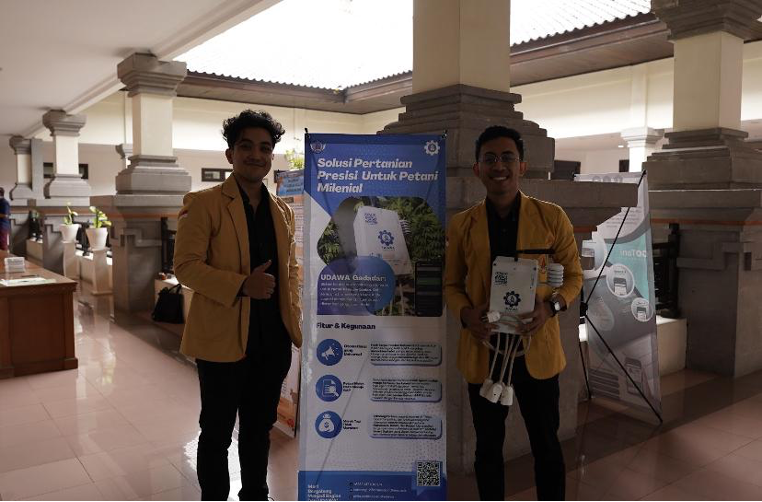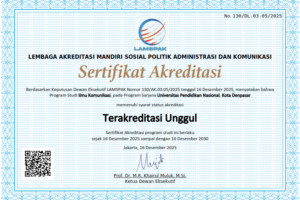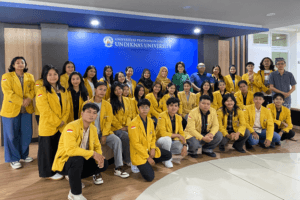
UDAWA Gadadar: Undiknas’ Innovation in Advancing Sustainable Agriculture
Denpasar, September 10, 2024 – Universitas Pendidikan Nasional (Undiknas) is taking a new step in modern agriculture through its innovative platform, UDAWA Gadadar. This technological advancement is part of the UDAWA (Universal Digital Agriculture Watering Assistant) platform and promises to revolutionize how small farmers manage their resources.
The team developing UDAWA Gadadar consists of students and lecturers from the Information Technology program at Undiknas, led by Ir. I Wayan Aditya Suranata, S.Kom., M.Kom. The success of this project is the result of close collaboration between students, lecturers, and other stakeholders. It began with the need for a technology that could improve agricultural efficiency and productivity, driving the team to develop a technology that is accessible and easy for farmers to implement, using their knowledge of information technology and hardware engineering.
UDAWA Gadadar enables farmers to control agricultural devices, such as fertigation pumps and lighting systems, via a smartphone application. This technology gives farmers the ability to remotely monitor and manage their fields, contributing to increased efficiency and reduced energy consumption. One of the system’s most important features is data logging, which records energy usage and environmental conditions like temperature and humidity. This data helps farmers make informed decisions to optimize crop yields while minimizing resource waste.
The platform’s potential aligns with several Sustainable Development Goals (SDGs), particularly those related to food security, clean energy, and responsible production. By enabling more efficient energy use through features like solar-powered greenhouses, UDAWA Gadadar supports the goal of affordable and clean energy (SDG 7). Additionally, the platform enhances agricultural productivity (SDG 2: Zero Hunger) and promotes sustainable farming practices that reduce environmental impact (SDG 12: Responsible Consumption and Production).
As UDAWA Gadadar continues to develop, Undiknas is committed to making this technology accessible, especially to farmers in rural areas who need sustainable solutions to improve their crop yields. With the support of the university’s research and development team, this innovation has the potential to create a significant shift in the agricultural landscape of Indonesia, helping to ensure a more sustainable future for generations to come.



